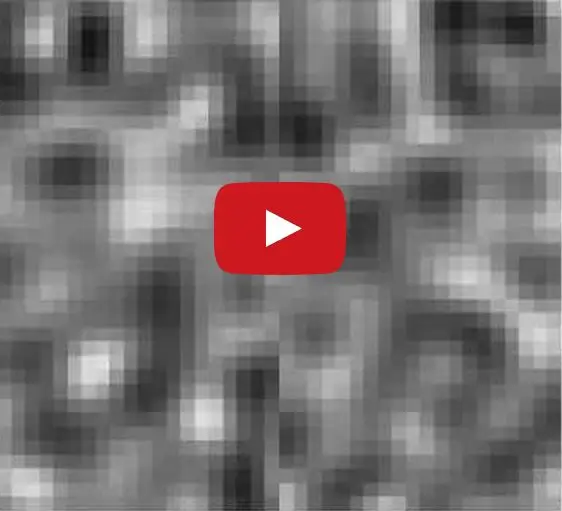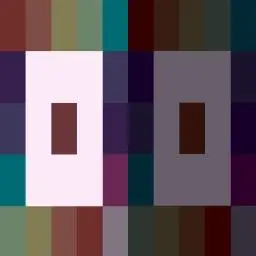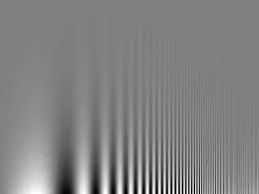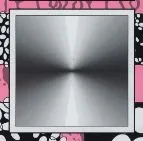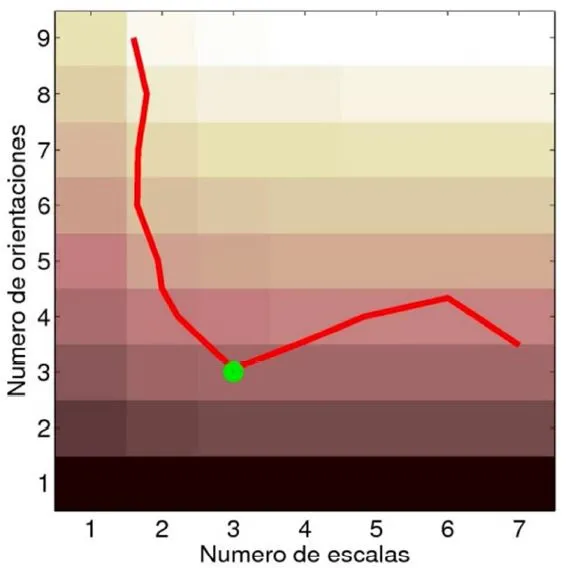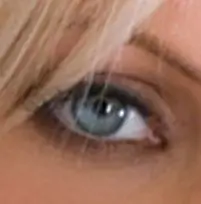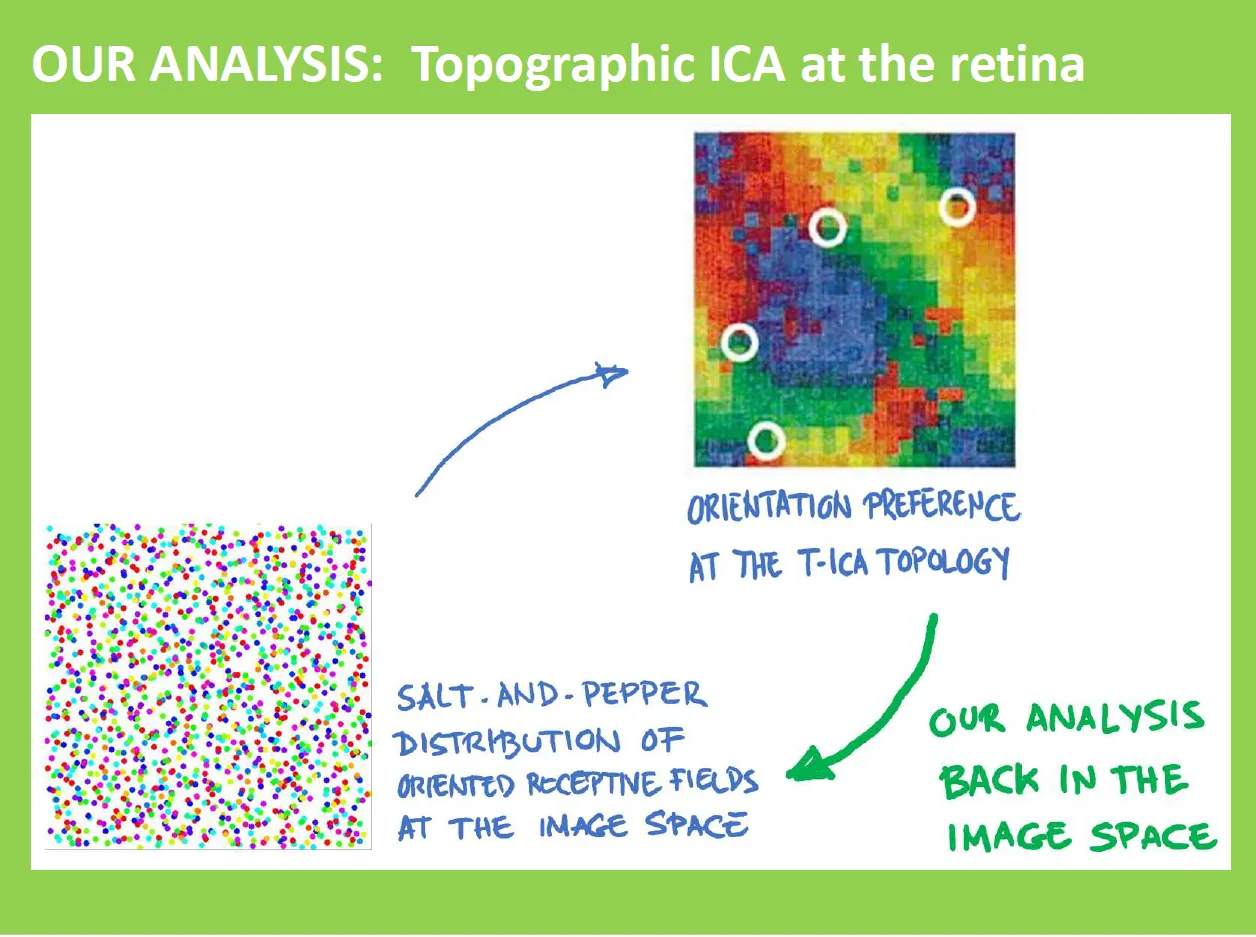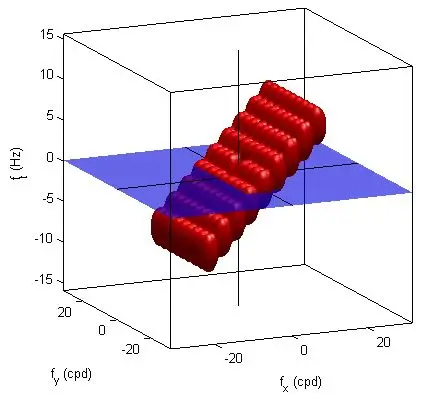Vision and color science
AfterEffects: Motion, Color and Texture After-Effects
AfterEffects is a web-based platform containing code and data for generating motion, color, and texture after-effects. It reproduces these effects according to infomax or error minimization organization goals using Sequential Principal Curves Analysis (SPCA).
References
- Sequential Principal Curves Analysis: Infomax and Error Minimization Applications. Available online with datasets.
COLORLAB: Visual Statistics Coding and Restoration Toolbox
COLORLAB is a color computation and visualization toolbox to be used in the MATLAB environment. It is intended for colorimetric applications, such as color image processing and psychophysical experimentation. The toolbox includes classical Tristimulus representations (e.g. CIE XYZ 1931), current Color Appearance Models (CIE Lab 76 or CIECAM2000), and various tools for visualization and color processing.
References
- Classical Tristimulus Representations and Current Color Appearance Models for Psychophysical Experimentation. CIE XYZ 1931 and CIECAM2000.
CSFTools
CSFTools is a MATLAB toolbox that provides spatial Contrast Sensitivity Functions (CSF) of the ModelFest Standard Spatial Observer (Watson&Malo 2002). It also includes chromatic CSFs from Mullen (1985). The toolbox covers spatio-temporal CSF in terms of frequency (Kelly 1979) and speed (Daly 2000).
References
- ModelFest Standard Spatial Observer. Watson, A. & Malo, J., 2002.
- Spatio-Temporal CSFs and Contrast Sensitivity. Mullen, R., 1985.
DNTools
DNTools is a MATLAB toolbox that models texture perception using Orthonormal Wavelets and Divisive Normalization. It simulates a V1 cortex model tuned to image quality opinions and is found to perform non-linear ICA on natural images.
References
- Wavelet-based Texture Perception Model with Divisive Normalization. Available as part of the DNTools Toolbox.
LinearNoisyTools
LinearNoisyTools is a MATLAB toolbox for modeling texture perception, focusing on Poisson noise in V1 sensors. The toolbox includes achromatic CSF filtering, steerable wavelets with optimized architectures, and psychophysically measured noise models.
References
- Achromatic CSF Filtering and Poisson Noise in V1. Optimized Wavelet Architectures for Texture Perception.
TheHumanCamera
The Human Camera is a Brain-Machine Interface designed for image transmission. It uses the human brain for feature extraction and dimensionality reduction, instead of conventional algorithms. The toolbox showcases decoding algorithms based on a V1 cortex model.
References
- Brain-Machine Interface for Image Transmission: The Human Camera Toolbox. Decoding Algorithms Based on V1 Cortex Models.
Topographic ICA
Topographic Independent Component Analysis (TICA) is a method for learning topographically organized features from visual data. It extends the Independent Component Analysis (ICA) algorithm by incorporating spatial proximity, aiming to model how neurons in the visual cortex represent information with localized and continuous receptive fields. TICA has been applied to understand orientation domains in the brain’s visual cortex, but studies have shown that the model may produce discontinuous, scrambled orientation maps, contradicting experimental observations.
References
- Hyvärinen, A. and Hoyer, P. (2001). Topographic Independent Component Analysis.
- Ma, L. et al. (2008). Neurocomputing: An application of TICA in visual representation.
VirtualNeuroLabs
VirtualNeuroLabs provides a collection of MATLAB tools designed to simulate physiological and psychophysical experiments. It also illustrates the behavior of neural models when processing complex stimuli. These tools are ideal for students studying visual neuroscience at a graduate level.
References
- Simulating Physiological and Psychophysical Experiments Using VirtualNeuroLabs. Visual Neuroscience Study Tool.
